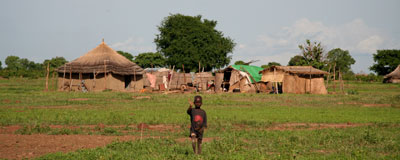Sudan is the Arab lost agricultural treasure. In realty it is the Arab world’s food parcel. we all know this axiomatic reality from our books and studies.
Sudan has all the prerequisites of agriculture, fertile land, water, in addition to other natural resources.
Moreover, the country’s water resources stem mainly from the Nile river which yields 18.5 billion cubic meters , in addition to 40 billion cubic meter from the trapped water below the crust. besides, rainfall average in Sudan is 150 – 700 Millimeters.
In fact Sudan has also a strategic and prominent location in the heart of Africa where its land borders 9 African states .The huge expansion of the Sudanese area is the main reason behind the city’s various agricultural systems and the production of many different bumper crops.
However, under the current global food crisis in general and in the Arab world in particular, many Arab states are currently pursuing investments in Sudan with respect to the agricultural sector , namely in the field of strategic crops .The step came within the framework of the Sudanese government’s call on the Arab states to implement agricultural enterprises on its properties.
The Sudanese bid enables the Arab states to utilize the Sudanese natural resources and environmental diversity from the desert at the north to the equatorial plains in the south. Namely, from the country’s spacious fields which consist of 40% of the Arab world arable land.
However, the Arab world with a population of 350 million is currently suffering from a real problem threatening its food security. The Arab states are now importing foodstuffs from the world’s various countries at a cost of USD35 billion to meet their need for food . .Sudan in its turn also faces a real famine due to the latest developments in the country ,namely the secession of its south.
In this regard Jordan was the first Arab country to respond to Sudan’s call . the Jordanian government signed an accord with its Sudanese counterpart on enhancing cooperation in the agricultural field.
Abu Dhabi also decided to plant 70.000 acres in Sudan. While Saudi Arabia, aiming to protect its food safety decided to plant staples such as wheat ,rice, bean, and corn on the Sudanese fields.
The Arab investments will have a positive and genuine impact on relieving the food crisis in Khartoum and establishing a joint Arab agricultural policy.
It is noteworthy that Sudan has 200 million acres of fertile land,50 million acres of which are planted and 150 are still wasteland due to the lack of stability and security in the war-torn country.
The General administration for Agricultural investments in Sudan launched a new initiative for developing its agricultural sector through enhancing cooperation with its fellow Arabs in this regard.
But in line with Sudan’s successive crisis including the south , Darfur and the crises of the east and north , the country encounters genuine obstacles in developing its farming sector.
However the most dangerous challenge which is currently facing Sudan is the transformation of its economy from a productive one depending on agriculture to an economic aspect regarding the production of oil.
Nahla Maaz

